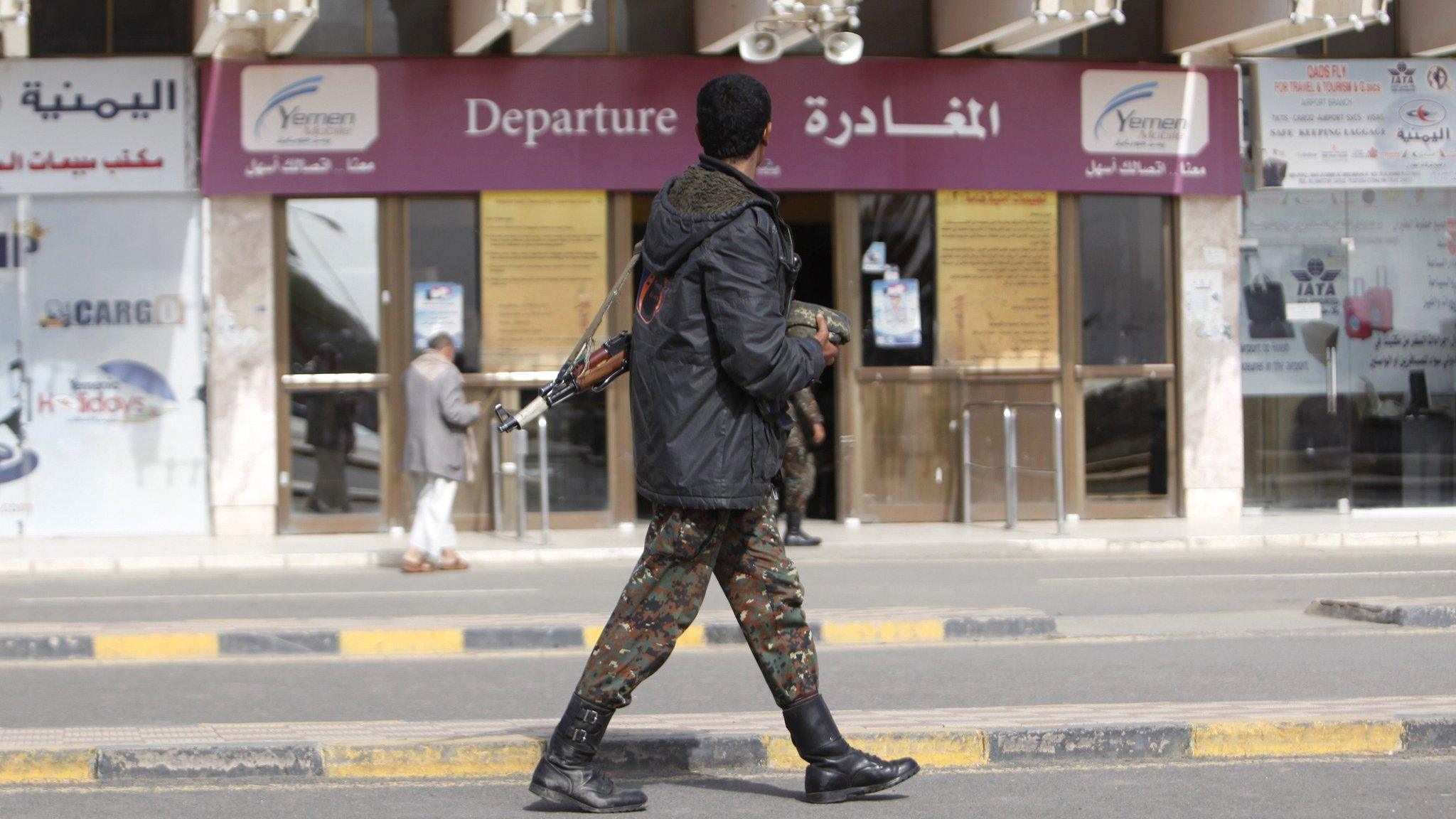Heathrow and Manchester issue must-be-charged gadget advice
- Published
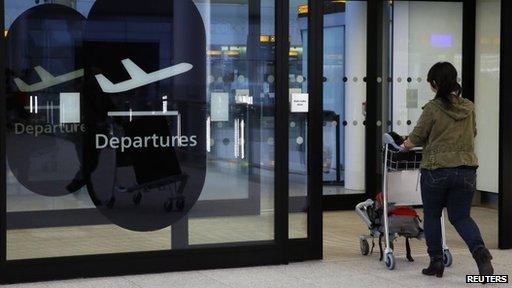
Passengers at Heathrow will be required to show their electronic devices functioning
Heathrow and Manchester airports have told passengers to ensure all electronic devices carried as hand baggage are charged before travel if they are flying to the US.
The move follows a request from the US that, external "certain overseas airports" implement enhanced security measures.
A new rule states that, external if a "device doesn't switch on, you won't be allowed to bring it on to the aircraft".
Airline staff will carry out checks on the devices at boarding gates.
British Airways has said that its customers, external face being made to rebook if they are found in possession of an uncharged device.
The Department for Transport declined to say whether other UK airports would enforce similar restrictions on flights to the US.
American officials said last week they were aware of a "credible" terrorist threat, but have not linked the security changes to any specific intelligence.
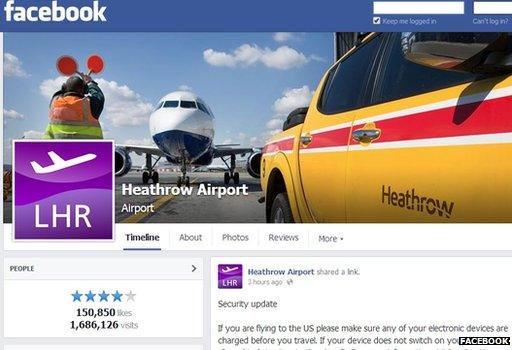
Heathrow alerted passengers to the new rules via its Facebook page and its own website
Analysts, however, have suggested the action could be a response to efforts by Islamic militants in Syria and Yemen to build bombs that evade airport security checks.
Powerless phones
A spokeswoman for Heathrow said that it did not comment on security matters.
But the BBC understands that passengers flying to the US will be advised to remove relevant chargers from their hold luggage at check-in, so that they can top up carried-on gadgets if necessary. Alternatively, they can opt to place any powered-down kit in their stowed luggage.
If they still arrive at the security point with a powerless device, they will be directed to a nearby retailer that might be able to provide a recharging cable, and told of the location of airport charging points.
If the traveller is still unable to power on their machine, it will be suggested they make use of MailandFly - an existing service offered by the firm Bagport, which is based at Heathrow's security control.
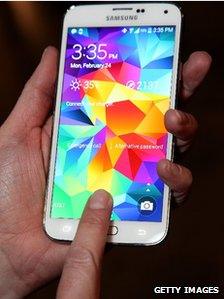
The US has said that mobile phones will be among the checked items
It allows passengers to pay for banned hand baggage to either be shipped to them separately or be stored at one of the firm's warehouses for up to 42 days.
"We already deal with perfumes, knives and other prohibited items... and shipping a powered-down device would be possible," said Bagport station manager Liisi Puutsa.
If the traveller rejects this option, it will ultimately be up to the airline to arrange what happens to the device.
British Airways has warned its customers that even newly purchased devices from an airport shop must have power, noting that checks might be carried out at the boarding gate in addition to the earlier security controls.
It noted that passengers using London as a transfer point must also have their devices charged, adding that anyone who failed to meet the requirement faced delays.
"If your device doesn't power up when you are requested to do so, you will not be allowed to fly to the US on your original service. Our customer services team will look after the rebooking of your travel arrangements," it said on its website.
Virgin Atlantic, Delta Air Lines and Air France were all unable to provide details of how they would tackle such a situation when asked by the BBC.
Check list
The authorities are not providing a specific list of the devices now subject to power-on checks.
However, the US Transport Security Administration has singled out mobile phones as one type of device affected, external, and the UK's hand luggage rules also mention tablets, MP3 players, cameras and electric shavers as other examples.
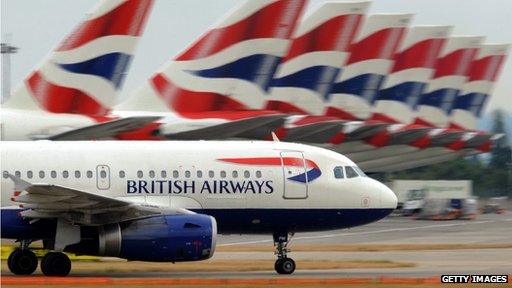
British Airways says that some customers may be made to switch to a different flight
One expert suggested an ever-growing number of gadgets were likely to be included over the coming years.
"When they first started asking for laptops to be taking out separately, they used to ask that the device be powered up too," said TK Keanini, chief technology officer at the cybersecurity firm Lancope.
"This is nothing new in terms of a requirement, but I do see it as a growing challenge for them as more and more types of devices start to make it through these checkpoints.
"With the 'internet of things' approaching, smart-everything will pose new challenges at these checkpoints."
- Published6 July 2014
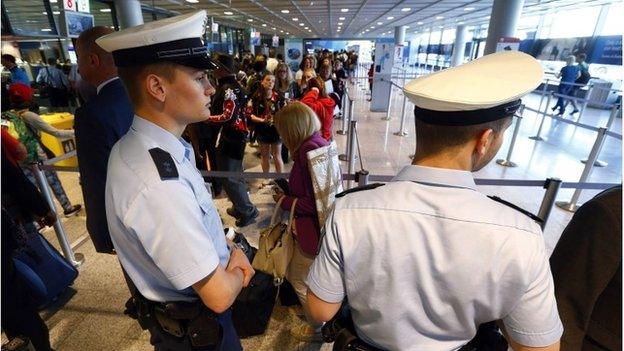
- Published4 July 2014
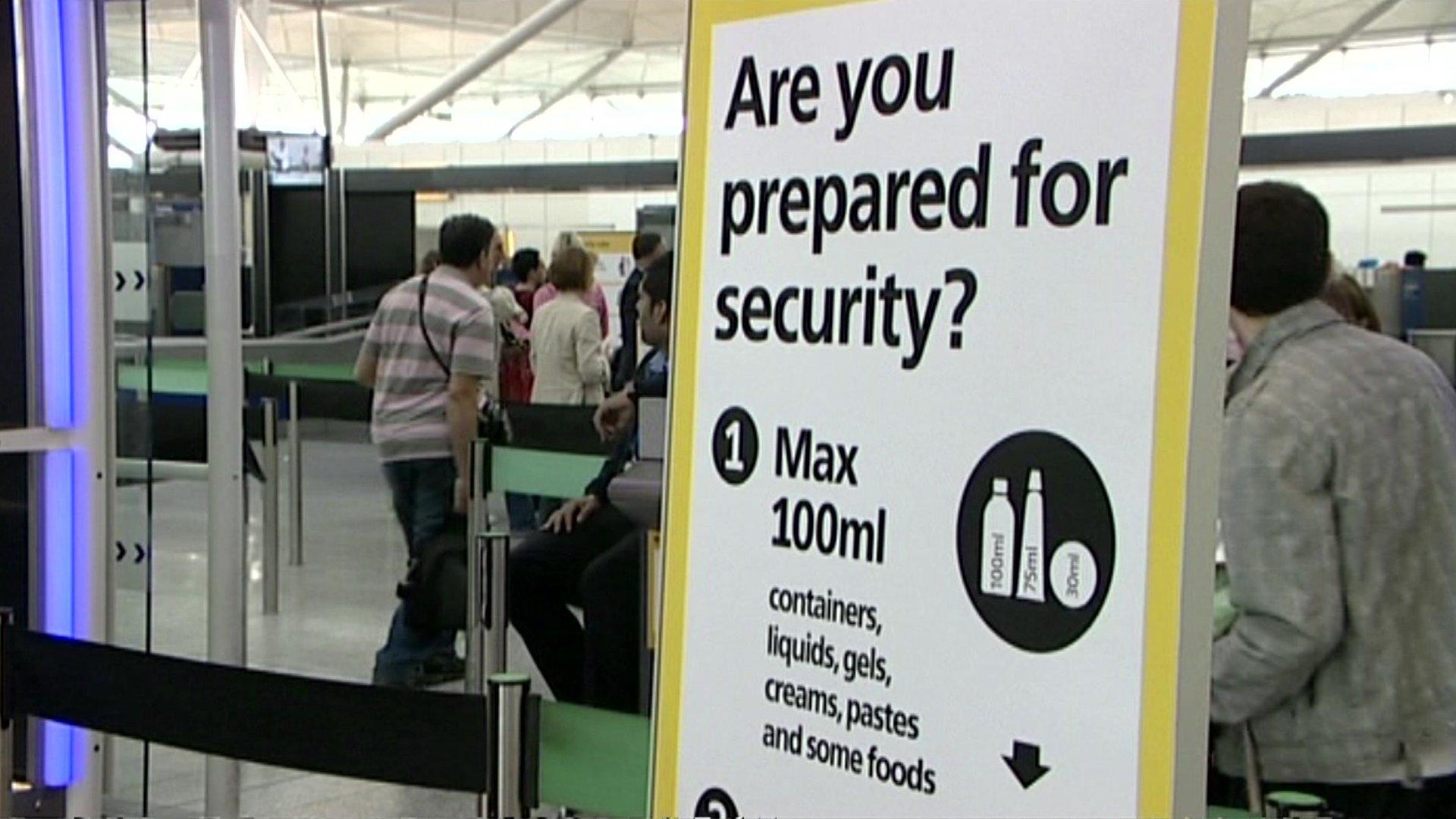
- Published4 December 2013
